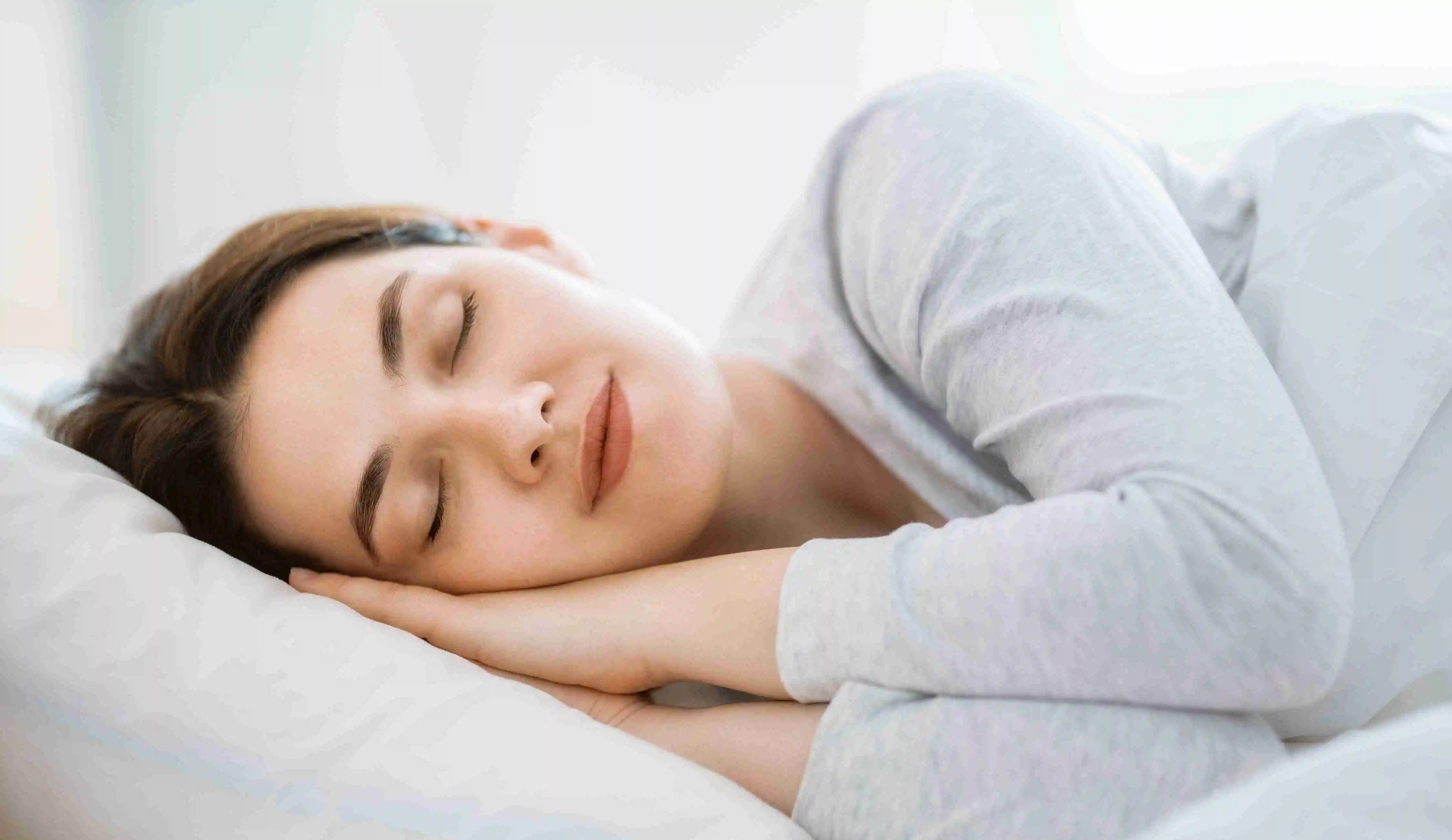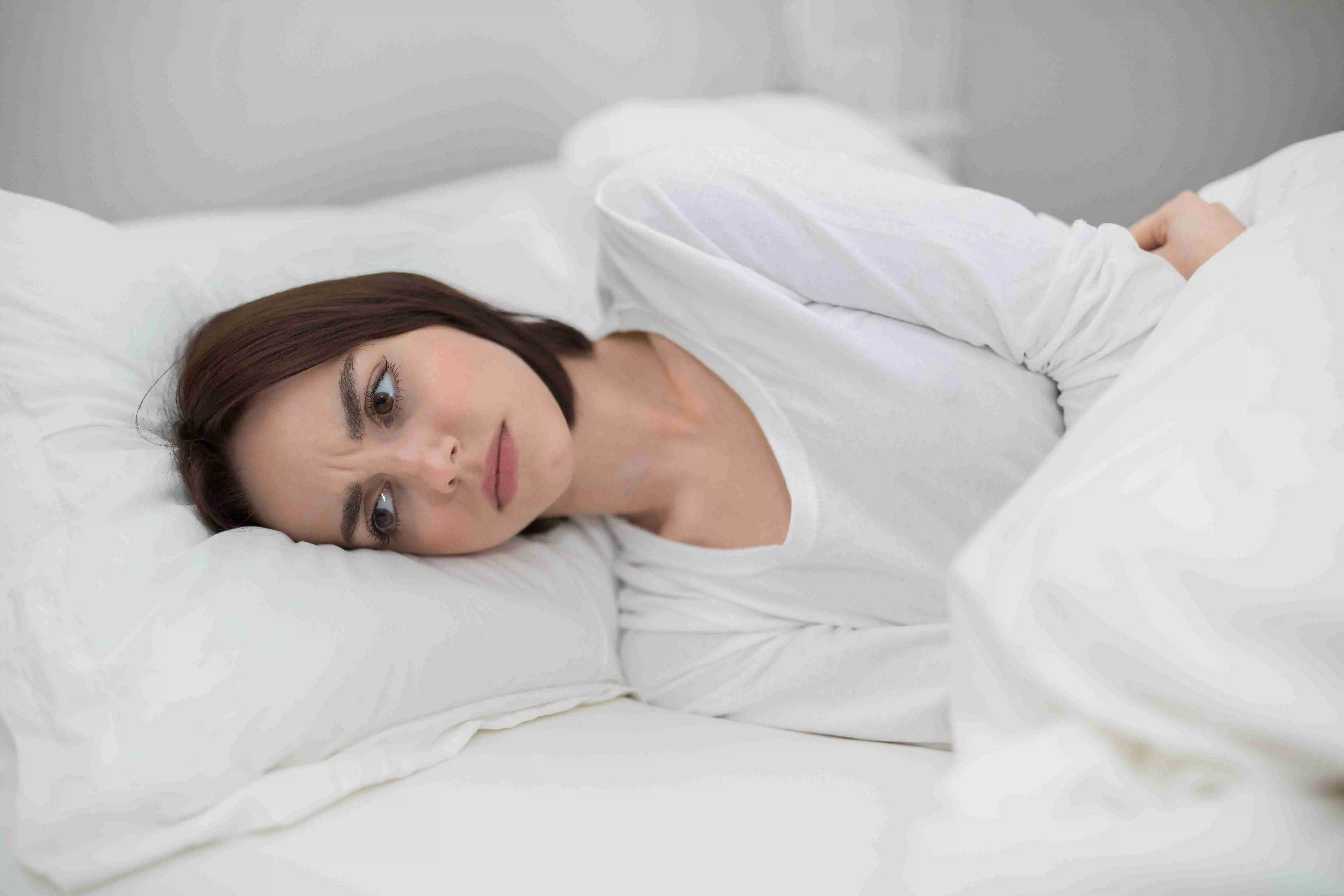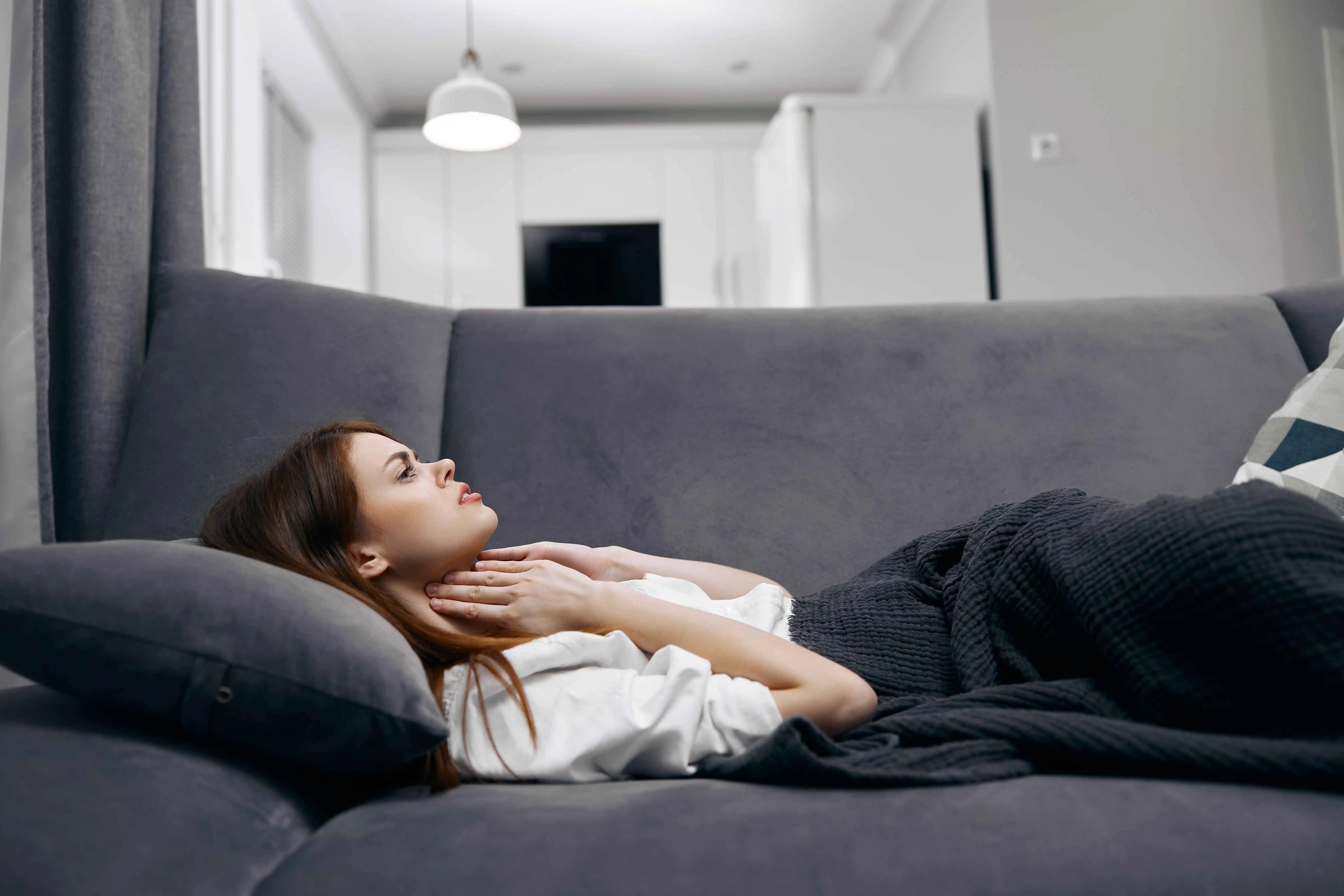ADHD, short for attention-deficit/hyperactivity disorder, is a neurodevelopmental disorder characterized by symptoms of inattention, hyperactivity, and impulsivity. It affects both children and adults and can have a significant impact on daily functioning and overall quality of life.
Importance of Sleep for Overall Health

Sleep plays a crucial role in maintaining overall health and well-being. It is not just about resting and recharging; it is a vital process that allows the body to repair, restore, and rejuvenate. Adequate sleep is essential for physical, mental, and emotional health. Some of the most important benefits are listed below.
- Enhanced Physical Health: During sleep, the body goes into a state of rest where it can repair and rebuild tissues, strengthen the immune system, and regulate hormone levels.
- Decreased Risk of Developing Chronic Conditions: Lack of sleep has been linked to chronic conditions such as obesity, diabetes, cardiovascular disease, and even certain types of cancer.
- Weight Management: Sleep affects our ability to maintain a healthy weight by disrupting the balance of hormones that regulate appetite and satiety.
- Enhanced Mental Health: During sleep, the brain processes information and consolidates memories. Sufficient sleep improves cognitive function, memory retention, and problem-solving abilities. It also helps to regulate mood and emotions, reducing the risk of developing mental health disorders such as depression and anxiety.
- Emotional Well-Being: A good night's sleep helps regulate emotions and improves emotional resilience. It allows us to better manage stress and cope with daily challenges. On the other hand, lack of sleep can make us more emotionally reactive, leading to increased irritability, mood swings, and difficulty regulating emotions.
Overview of ADHD
Sleep problems, which are common among individuals with ADHD and can further exacerbate symptoms and impair functioning, often go unnoticed in the management of ADHD. Understanding the relationship between ADHD and sleep is crucial for effective treatment and management of this condition.
What is the relationship between ADHD and sleep?
There is a significant relationship between ADHD and sleep disturbances. Individuals with ADHD often experience difficulties falling asleep, staying asleep, and having restful sleep.
These sleep problems can be attributed to various factors, including hyperactivity, impulsivity, and inattention, which are characteristic symptoms of ADHD.
Furthermore, using stimulant medications commonly prescribed for ADHD treatment can contribute to sleep disturbances.
Common Symptoms and Signs of ADHD

Symptoms of ADHD can vary drastically from one person to another, and ADHD symptoms in men are different from ADHD symptoms in women. While some of them are more common than others, some people might exhibit more hyperactive symptoms, while others might struggle more with inattentiveness.
Inattentiveness
- Often Forget Things: Individuals with ADHD often forget things such as appointments, deadlines, and tasks that need to be completed. This forgetfulness can lead to difficulties in managing daily responsibilities and can be frustrating for both the individual and those around them.
- Making Careless Mistakes: ADHD sufferers may frequently make careless mistakes. They may rush through tasks without paying attention to details, resulting in errors. This can be particularly problematic in academic or work settings where accuracy is important.
- Difficulty in Completing Tasks: Individuals with ADHD often find it challenging to pay attention and stay focused on tasks, which can make it difficult for them to complete instructions or follow through on them. They may get easily distracted or lose interest, leading to incomplete tasks or projects.
- Difficulty Getting Along with Others: People with ADHD often struggle with social interactions, finding it challenging to maintain positive relationships with peers, family members, and colleagues. They may have difficulty listening, interrupting others, or not paying attention during conversations. These difficulties can lead to misunderstandings and conflicts, which can further strain relationships.
Hyperactivity
- Daydreaming: One of the common symptoms of ADHD is finding it difficult to stay focused on tasks as they frequently daydream and get lost in their thoughts. This can lead to problems with productivity and completing tasks on time.
- Fidgeting: People with ADHD often have a hard time sitting still and may constantly move their hands, feet, or other body parts. This restlessness can be disruptive in settings such as classrooms or workplaces, as it may distract others around them.
- Difficulty Sitting Still: Difficulty sitting still is also a hallmark symptom of ADHD, as individuals with ADHD may have a strong urge to constantly be on the move or engage in activities that provide stimulation. They may have trouble staying seated during situations where it is expected, such as during meetings or meals.
- Constantly Needs to Talk Excessively: Individuals with ADHD often struggle with impulsivity and have difficulty regulating their thoughts and speech. They may interrupt conversations, speak out of turn, and have difficulty waiting for their turn to speak. This excessive talking can be disruptive in social settings and can affect relationships and interactions with others.
Sleep Issues Related to ADHD

People who suffer from ADHD might also suffer from various other sleep-related issues that could lead to unrestful sleeping experiences, and individuals with ADHD and sleep-related issues need to seek proper diagnosis and treatment to improve their quality of sleep and overall well-being.
Insomnia
Insomnia, or difficulty falling asleep and staying asleep, is a prevalent sleep disorder among individuals with ADHD. This can be attributed to the hyperactivity and impulsivity associated with ADHD, which can make it difficult for individuals to relax and wind down at bedtime.
Circadian Rhythm Sleep Disorders
Circadian rhythm sleep disorders disrupt the natural sleep-wake cycle, making it difficult for individuals with ADHD to fall asleep at night and wake up in the morning. This can lead to excessive daytime sleepiness and fatigue, which in turn can worsen ADHD symptoms and impair cognitive functioning.
Obstructive Sleep Apnea (OSA)
Individuals with ADHD may experience obstructive sleep apnea (OSA), which is a condition characterized by pauses in breathing during sleep due to blocked airways, which could be very disturbing to sleep and will negatively affect the sleeping experience.
Restless Legs Syndrome
Restless leg syndrome (RLS) is another sleep-related issue that is commonly seen in individuals with ADHD. People with ADHD might develop an uncomfortable sensation in the legs, which is a common symptom of RLS, and in turn, this will lead to an irresistible urge to move them, which often interferes with sleep.
Sleep Anxiety
The constant racing thoughts and worry associated with ADHD can manifest as anxiety specifically related to sleep. Individuals with ADHD may become anxious about falling asleep, staying asleep, or even experiencing nightmares or night terrors. This can further exacerbate insomnia and other sleep-related issues.
Behavioral Sleep Problems
Individuals with ADHD often struggle with settling down and falling asleep at night, experiencing restlessness, frequent awakenings, and poor sleep quality. These behavioral sleep problems can further impact their daily functioning, including attention, memory, and overall behavior.
Narcolepsy
In some cases, individuals with ADHD may also experience narcolepsy, a neurological disorder characterized by excessive daytime sleepiness and sudden episodes of sleep. Narcolepsy can be particularly challenging for individuals with ADHD, as it can interfere with their ability to concentrate and focus during the day.
Tips for People Who Suffer from Sleep-Related Issues because of ADHD
Creating a Consistent Sleeping Schedule
For individuals who suffer from sleep-related issues as a result of ADHD, establishing a consistent sleeping schedule is crucial. Going to bed and waking up at the same time each day can help regulate the body's internal clock and improve sleep quality.
Create a Relaxing Sleeping Environment
Creating a relaxing sleeping environment is essential for those with ADHD. By removing electronic devices from the bedroom or using blackout curtains to block out excessive light, you can achieve this.
Keeping the bedroom cool and quiet can also contribute to a more restful sleep. Investing in a comfortable mattress and pillow that provide proper support can further enhance sleep quality
Developing a Bedtime Routine
Creating a bedtime routine that includes winding down activities before bed, such as reading or taking a warm bath, can also signal to the brain that it's time to relax and prepare for sleep.
By adhering to a consistent schedule, individuals with ADHD can train their bodies to recognize when it's time to rest, making it easier to fall asleep and stay asleep throughout the night.
Reduce Sugar Intake
Consuming excessive amounts of sugar, especially close to bedtime, can lead to hyperactivity and restlessness, making it difficult to fall asleep. By minimizing sugar intake, individuals with ADHD can help regulate their energy levels and create a more conducive environment for sleep.
Limit Caffeine and Stimulants
It is important to limit the intake of caffeine and stimulants, as they can interfere with sleep patterns. Avoiding these substances, especially in the afternoon and evening, can contribute to a more restful night's sleep.
Regular Exercise
Engaging in physical activity regularly can help reduce symptoms of hyperactivity and restlessness, promoting better sleep. Exercise releases endorphins, which aid in relaxation and can alleviate anxiety or stress that may disrupt sleep patterns.
Limit Screen Time
Limiting screen time is crucial for individuals with ADHD who struggle with sleep-related issues. Melatonin, the hormone in charge of controlling sleep, can't be produced as a result of the blue light that electronic devices like smartphones, tablets, and computers emit.
Use a Weighted Blanket
People with ADHD should use a weighted blanket because the gentle pressure it provides can have a calming effect on the body, promoting relaxation and reducing restlessness.
Cognitive and Behavioral Interventions
- Cognitive Behavioral Therapy for Insomnia (CBT-I): Cognitive Behavioral Therapy for Insomnia (CBT-I) focuses on changing negative thoughts and behaviors that may contribute to sleep problems. CBT-I can help individuals with ADHD develop healthy sleep habits, reduce anxiety around bedtime, and improve overall sleep quality.
- Sleep Diary: Keeping a sleep diary can also be helpful for people with ADHD who struggle with sleep problems. This involves recording details about sleep patterns, such as bedtime, wake time, and any factors that may impact sleep quality, such as caffeine intake or excessive screen time before bed. By tracking these variables over time, individuals can identify patterns or triggers that may be contributing to their sleep issues.
Medical Interventions
People who suffer from sleep-related issues due to ADHD can benefit from a combination of medical interventions and behavioral strategies. One effective medical intervention is the use of stimulant medications, which can help improve attention and reduce hyperactivity during the day.
FAQs
How do ADHD-related sleep problems affect daily life?
ADHD-related sleep problems can have a significant impact on daily life. Individuals with ADHD often struggle with sleep issues such as insomnia, restless legs syndrome, or sleep apnea. These sleep problems can lead to daytime drowsiness, lack of concentration, and reduced cognitive function. This can affect various aspects of daily life, including work or school performance, relationships, and overall well-being.
Is ADHD more common among children or adults?
ADHD, or attention deficit hyperactivity disorder, is a neurodevelopmental disorder that affects both children and adults. However, ADHD symptoms in kids are more common than ADHD symptoms in adults. ADHD is estimated to affect around 5–10% of children globally; however, ADHD in adults is also very common, but ADHD adult symptoms may vary from one person to another.
When should I see a professional if I’m suffering from ADHD?
If you are experiencing symptoms of ADHD that are affecting your daily life, it is critical to seek professional help. It is recommended to see a healthcare professional when the symptoms persist for at least six months and significantly interfere with your ability to function in various settings, such as work, school, or relationships.
How much sleep do ADHD people need?
While the recommended amount of sleep for adults is between 7 and 9 hours, individuals with ADHD may benefit from closer to nine hours of sleep per night. Children with ADHD may require even more sleep, with the recommended range being between 9 and 11 hours per night.
Is oversleeping part of ADHD?
Oversleeping is not typically considered a direct symptom of ADHD; however, there are sleep problems commonly associated with ADHD. These sleep problems can include difficulty falling asleep, frequent awakenings during the night, and restless sleep. Some individuals with ADHD may also experience excessive daytime sleepiness, which can contribute to oversleeping.
How could I know if my child has ADHD?
One of the key indicators of ADHD is difficulty paying attention. Children with ADHD often have trouble staying focused on tasks or activities. They may also have trouble following instructions or organizing their thoughts. Another common symptom is hyperactivity, where the child is constantly on the move, fidgeting or squirming. Impulsivity is also a hallmark of ADHD.
Conclusion
Sleep problems are prevalent among individuals with ADHD and can significantly impact their daily functioning and quality of life. Recognizing and addressing these sleep issues is crucial in the management of ADHD.
By implementing strategies to improve sleep hygiene, such as maintaining a regular sleep schedule, creating a soothing bedtime routine, and avoiding stimulants close to bedtime, individuals with ADHD can optimize their sleep and ultimately alleviate some of the symptoms associated with this disorder.
Karen Barnard
Karen is a Human Movement Science expert and a certified sports nutrition and massage therapist. At Sleepiverse, she combines her passion for human movement science and sleep health to educate herself and her readers about healthier sleep. In addition to writing articles, Karen manages a fitness studio offering private training, athletic conditioning, and sports massage therapy. She focuses on providing people with a holistic environment for people to reach their health goals, often incorporating stretch therapy to promote mental tranquillity and help people improve their sleep.


